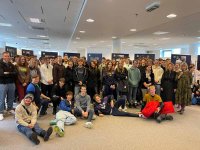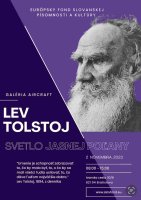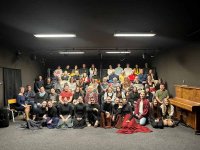 On November 27, 2023, the opening of the photo-documentary exhibition “The Light of Yasnaya Polyana” took place at the European Foundation of Slavic Literature and Culture (EFSPaK) as part of an educational project dedicated to the life and work of Leo Tolstoy.
On November 27, 2023, the opening of the photo-documentary exhibition “The Light of Yasnaya Polyana” took place at the European Foundation of Slavic Literature and Culture (EFSPaK) as part of an educational project dedicated to the life and work of Leo Tolstoy.







